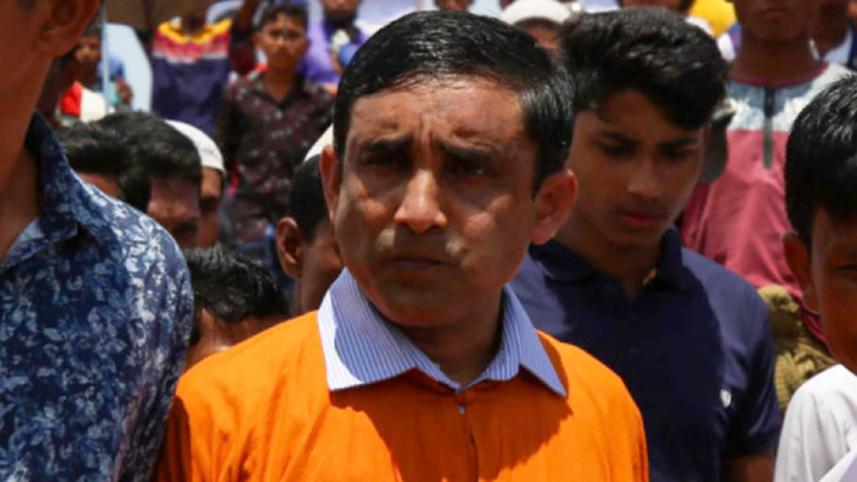Mohib Ullah’s murder exposes many fault lines

The killing of Rohingya refugee leader Mohib Ullah exposes several systemic loopholes. Firstly, the security in the Rohingya camps is abysmal—so much so that the killers were able to enter a refugee camp, kill the person in cold blood, and make their escape with ease. What is the point of placing security around his house now, after he has been murdered? Secondly, small arms and weapons are not only freely accessible in the area, but people can move about with them with near impunity.
Regrettably, the Rohingya issue has also become intertwined with national and international politics with multiple stakeholders, each having their own agenda to advance and interest to uphold. Unfortunately, Bangladesh finds itself caught up in the middle of a complex problem, with little chance of a quick solution. Mohib Ullah's murder has further complicated the matter. And the sooner the brains behind the killing are detected, the easier it would be for the administration to deal with the issue more efficiently, and—hopefully—start the process of repatriation.
It is no secret that Mohib Ullah was the leading spokesman for the Rohingya cause. He worked hard to record the atrocities perpetrated by the Myanmar military on the Rohingyas. He had also been calling for holding the perpetrators to account and ensuring justice for the Rohingyas. He advocated for the rights of Rohingya refugees in Bangladesh and consistently urged the Myanmar government to recognise and guarantee the rights of the Rohingyas as a condition for their safe, voluntary, and dignified repatriation. Because of his activism in the camps, he fell into the bad books of the authorities, and received numerous death threats from his enemies.
But, reportedly, what might have done him in was his eagerness to return to his homeland—to the country he belonged. But he also stressed that the return of his people should be safe, voluntary and dignified, and that they should be guaranteed the rights that are given to any citizen of Myanmar. His detractors opposed the idea on the grounds that they would return only after Arakan was liberated. Needless to say, it is a long shot and doesn't conform either to Bangladesh's policy nor enhances its national security. There is, we dare say, more to the killing of Mohib Ullah. Clearly, there is a powerful group working behind the scenes against repatriation. And they may have the backing of regional or international players. It's now for our law enforcement agencies to expose and quash them.



 For all latest news, follow The Daily Star's Google News channel.
For all latest news, follow The Daily Star's Google News channel.
Comments